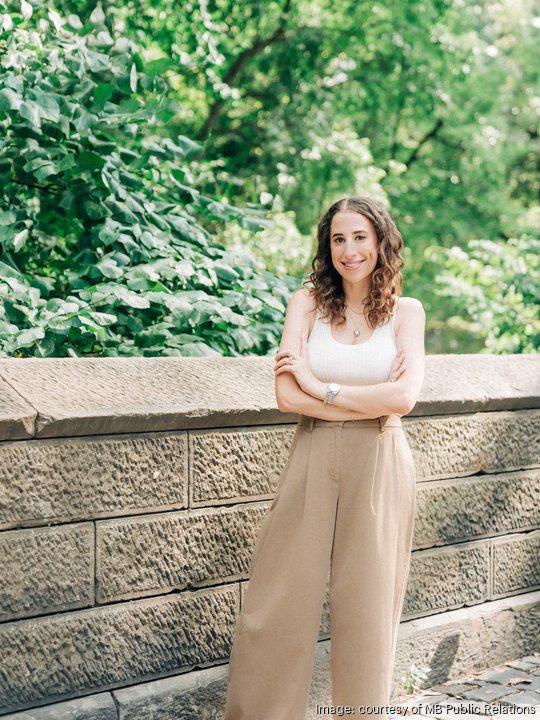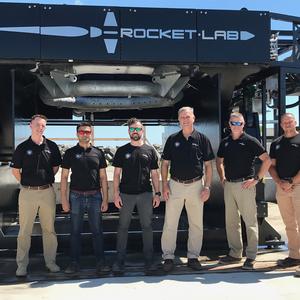
In 2017, Lauren Makler was in the midst of launching Uber's health care arm, Uber Health, when she felt a sharp pain in her side that wouldn’t go away.
After pushing doctors to get tested, she underwent a diagnostic surgery that revealed an abdominal disease that she was told was “incredibly rare”. The test showed there were benign tumors growing in her abdomen and was told that she may never be able to have a biological child.
“This kicked off a very long journey for me, both personally and professionally, thinking through my fertility options,” she told L.A. Inno.
Ultimately, she co-founded Cofertility, a startup that looks to provide various options for women like herself. One is the opportunity for women to freeze their eggs, for free, it they opt to donate half of them to a family who can’t otherwise conceive, including members of the LGBTQ+ community, cancer survivors and those experiencing infertility.
Cofertility closed a seed round of funding last fall, raising $5 million led by Initialized Capital and Offline Ventures.
Foundation
When Makler first started exploring egg donation, her perception was “how antiquated and, for a lack of a better word, ‘icky’ the traditional system felt,” she said.
“Turns out I wasn’t alone,” she said. “In fact, one recent Harvard study found more than 60% of donor-conceived adults think the exchange of money for donor gametes is wrong, and most were disturbed by the fact that money was exchanged around their conception.”
She ultimately overcame her disease and was able to conceive her daughter naturally, but the process made her aware of some of the bigger issues within the reproductive health space, she said.
Her two other co-founders, Halle Tecco and Arielle Spiegel, also have “very personal and complicated journeys with fertility,” she said. Together, they launched Cofertility last fall.
Tecco previously founded Rock Health and Natalist, which was acquired by Everly Health in 2021.
How It Works
Cofertility created two platforms, Freeze by Co and Family by Co.
Freeze by Co enables women to more accessibly pursue egg freezing through two separate programs, Makler said. With the Split program, those who qualify can freeze and store their eggs for free when they give half of the eggs retrieved to a family who can’t otherwise conceive. The second is the Keep program, where women can freeze their eggs and store them all for their own use, with discounted opportunities throughout the process.
All members get access to Cofertility’s online community, where people talk “openly” about their egg freezing experience and support each other in real time.
The second platform is a “human-centered approach” for matching intended parents with egg donors in the Split program.
“Matches are made in a personal, empathetic way including educational resources, support tools and a community of other intended parents,” Makler said. “The intended parents…have shared that they feel a sense of purpose that they can play a role in helping someone preserve their future fertility in a very accessible format, in contrast to the more transactional nature of cash compensation for egg-donation.”
To date, tens of thousands of women have applied to the program, Makler said, as well as thousands of intended parents.
Cofertility has 10 full time employees. Makler serves as CEO.
Challenges the startup faced
With three female co-founders, Makler noted the dismal funding numbers for women-led startups — female founders in the U.S. raised only 2% of VC money in 2021.
In addition to the usual challenges of starting a new company, Maker said “the elephant in the room” was the overturn of Roe vs. Wade and how that affects women’s reproductive health in general.
“We’ll continue to face these challenges head on whatever they may be, and advocate for women so they build families on their own timeline, and for better education around reproductive health in general,” she added.
Market validates need
The egg donation market size was valued at more than $1 billion in 2020, and is expected to grow at a CAGR of more than 19% through 2027.
The IVF services market size was valued at approximately $3 billion in 2021 and is projected to exceed $3 billion by 2028.
American women are on average giving birth at 30 years old, the highest age ever recorded by the most recent U.S. Census Bureau statistics. And according to a report from the World Health Organization, more than 17% of the adult population experience infertility.
“Clearly there’s a new reality in the way we build families that is more dynamic than ever before,” Makler said. “Cofertility is leveling the playing field by creating a future in which people are no longer constrained to have children according to outdated standards, whether by society, finances or their own biology.”



